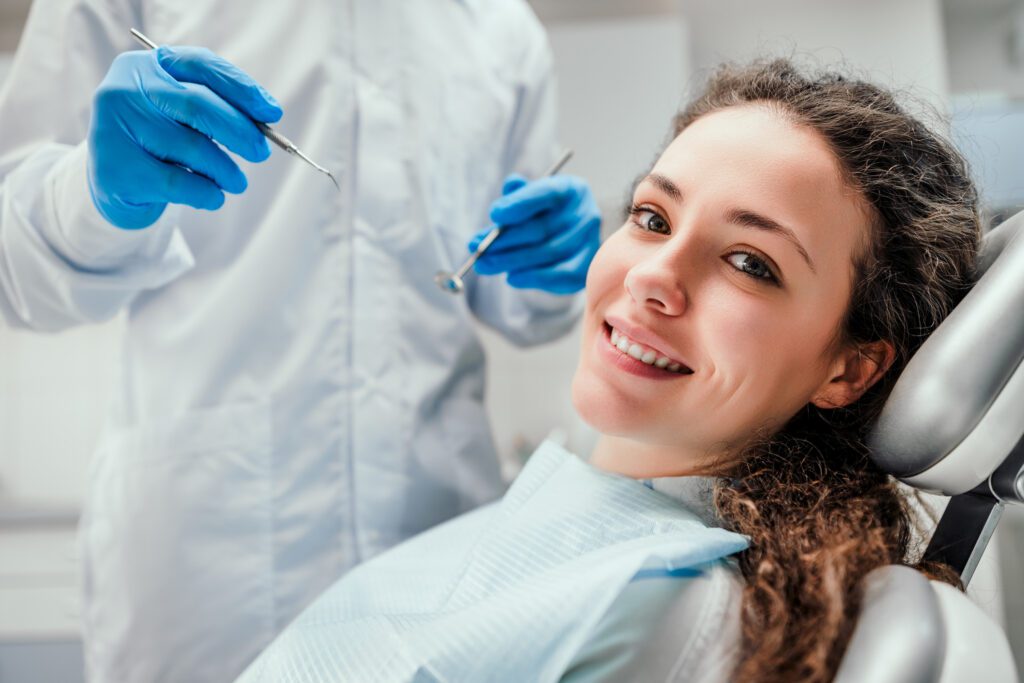At Integrated Dental, we treat a variety of dental concerns in his Sarasota, FL, dental office. We help patients feel confident about their smiles while improving their overall oral health. Whether you have bleeding gums, bad breath, or missing teeth, we take time to understand your needs. Our dentists offer personalized treatment options for the best care possible.
Our doctors are proud to be honored members of several respected dental organizations. Many are members of the American Academy of Cosmetic Dentistry (AACD), which focuses on the art and science of creating beautiful smiles. They are also part of the Academy of General Dentistry (AGD), a group dedicated to continuing education in all areas of dental care. In addition, some of our dentists are members of the International Congress of Oral Implantology (ICOI). They use this experience to provide restorative, general, and cosmetic treatments to treat common dental problems.

Dental Concerns We Treat at Integrated Dental
Our office can help if you have a sudden dental problem and need immediate care, or if you’ve had a problem in a while that you want to fix. Our doctors will work with you to treat your common dental problems.
Halitosis
You may have halitosis if you have bad breath that doesn’t go away after brushing or rinsing. This condition can be caused by poor oral hygiene, dry mouth, or infections in the mouth. In some cases, it may even be linked to problems like gum disease or decay.
At Integrated Dental, we’ll first identify the cause of your bad breath and then create a treatment plan. You may need professional cleanings, better at-home hygiene routines, or treatment for gum or tooth infections. No one should feel embarrassed to talk about bad breath
Bleeding Gums
While your gums can bleed from a mouth injury, the most common cause for bleeding gums is gingivitis. Also known as gum inflammation, gingivitis is the beginning of gum disease. We can treat bleeding gums and gum disease at Integrated Dental with deep cleanings and may recommend better home care routines. Catching and treating gum disease early is the best way to protect your teeth and gums for the long term.
Crooked Teeth
Is a slightly crooked tooth impacting how your smile looks? For slightly crooked teeth, we may recommend dental bonding or veneers. Bonding uses a tooth-colored material to reshape and straighten the appearance of teeth, while veneers are thin shells placed on the front of teeth to improve their shape and alignment. For more serious bite issues or overcrowding, we can refer you to a trusted local orthodontist.
Discolored Teeth
Tooth stains and discoloration can happen for many reasons, including drinking coffee, tea, or red wine, smoking, or aging. At Integrated Dental, we offer several options to treat discolored teeth. Teeth whitening is a popular choice for removing surface stains. We also offer veneers and dental bonding for deeper stains or spots that whitening may not fully fix.
TMJ Headaches
If you often wake up with headaches or feel pain around your jaw, you may have a problem with your temporomandibular joint, or TMJ. This joint helps you open and close your mouth, and problems with it can lead to headaches, jaw pain, clicking or popping sounds, and even trouble chewing. TMJ disorders are sometimes linked to teeth grinding, stress, or misalignment in your bite. At Integrated Dental, we can evaluate your symptoms and recommend treatments like a custom nightguard or changes to your bite for TMJ headaches.
Dental Anxiety
Feeling nervous about visiting the dentist is more common than you may think. Dental anxiety can prevent people from getting the care they need, which can lead to more serious problems over time. At Integrated Dental, we understand these fears and want every patient to feel safe and comfortable. We offer sedation options to help you relax during your visit.
Missing Teeth
If you’ve lost one or more teeth, we offer lasting treatments for missing teeth. Dental implants are the gold standard for tooth replacement. They’re designed to look, feel, and function just like your natural teeth. Implants are placed into the jawbone and support a crown, bridge, or denture, depending on how many teeth you’re missing.
Bruxism
Do you grind your teeth at night or wake up with a sore jaw? You may have bruxism, a condition where you clench or grind your teeth, often during sleep. Over time, this habit can wear down your teeth and cause damage to your smile. It’s also a common sign of a TMJ disorder. We treat bruxism with custom nightguards that fit over your teeth and protect them while you sleep.
Schedule an Appointment Today
Get the dental care you need in one office. Call Integrated Dental to treat dental concerns in Sarasota, FL at 941-398-0609. Request an appointment with us online.
